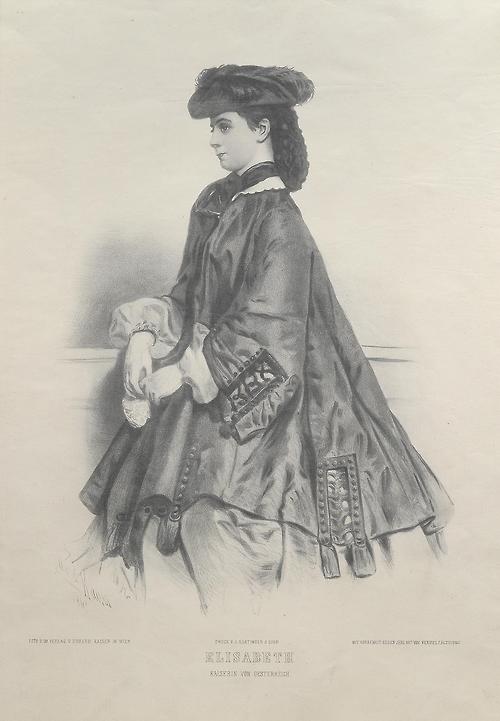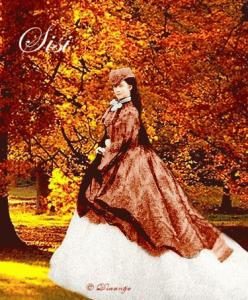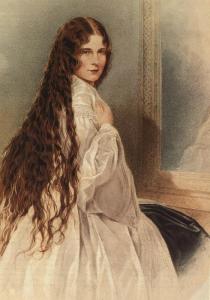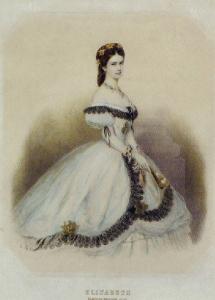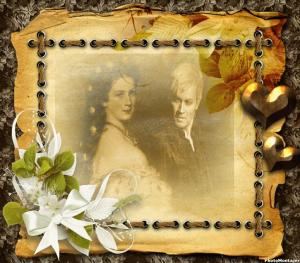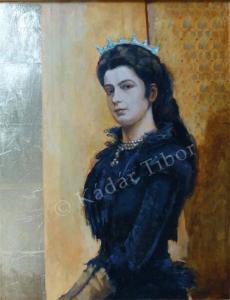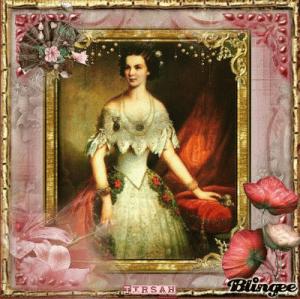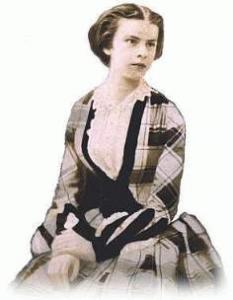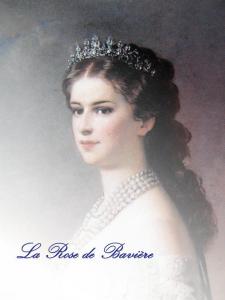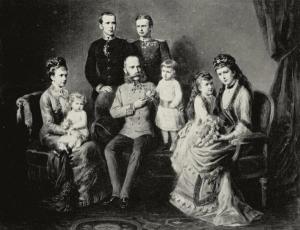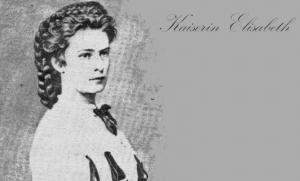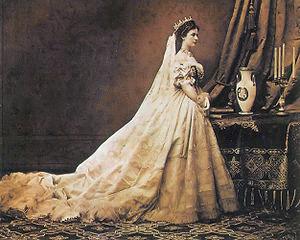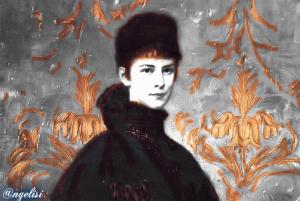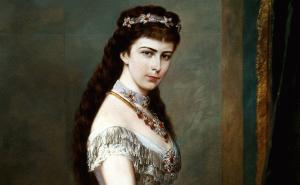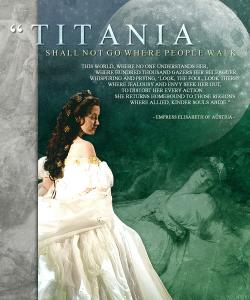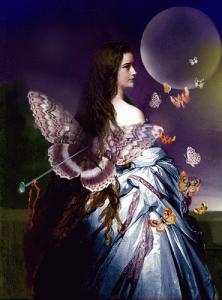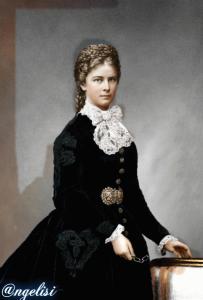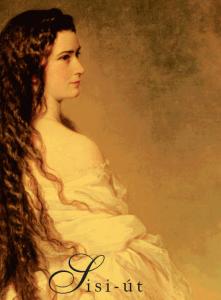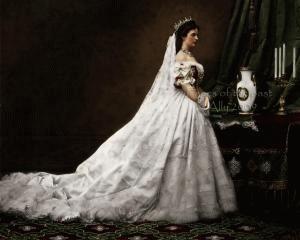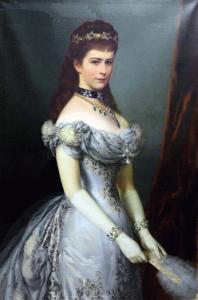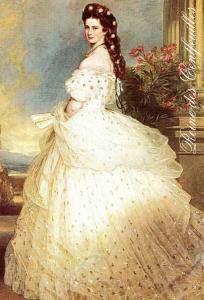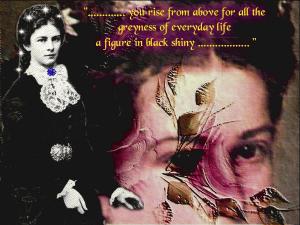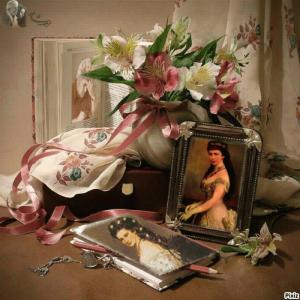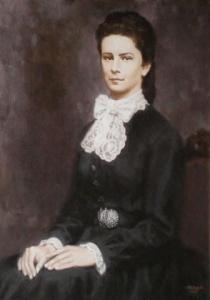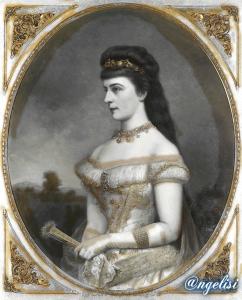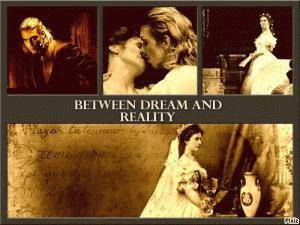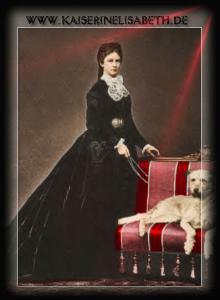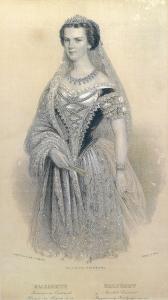Mayerling : suicide or state's murder ?
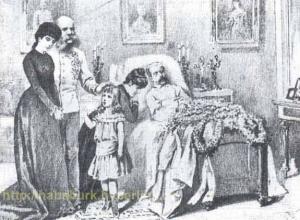
Mayerling Love and Death : Another conspiracy theory about
DOUBLE TRAGEDY IN AN AMBUSH INTERNATIONAL POLITICAL AND EXTREME CHALLENGE OF YOUNG LOVERS
Mayerling Love and Death was a perfect crime to change the non-academic world at the French historian Jean des Cars must be the ' have solved the mystery surrounding the tragic episode of the hunting lodge at Mayerling . Already his colleague Jean -Paul Bled , author of a biography of Franz Joseph valid in 1987 was far from minimizing the ' importance of the personal and political conflict between Rudolf and Wilhelm II , a conflict that strangely resembles the rest of what you oppose the Emperor Francis Ferdinand. But Des Cars puts good emphasis on the strange ambiguity of the character of Rodolfo: on the one hand Prince Don Juan , a lover of Wagner, fascinated if not obsessed by Tristan and Isolde - you could say that aspired to imitate the great final scene of ' love and death - and the 'other great statesman , who had conceived the project of breaking the ' alliance 's Austria and Germany of Bismarck and William II , considered the number one enemy . In fact , as the Habsburgs and at the same time defender of the monarchy , Rodolfo was unforgiving in Bismarck 's humiliation of Sadowa . In Vienna , this aspect of patriot and liberal prince Rudolph was worth a certain popularity , as well as everything that transpired of his aspirations to renew the monarchy through a liberal reform that would transform the Austro- Hungarian dualism into a ' unity of the Three Kingdoms reconstructed : Czech, Hungarian and Croatian, united under the imperial scepter . Pure utopia doomed to failure ? I would say no firmly . It was one of the possibilities of the story, if we refuse to believe the bad luck - of which they were spokespersons and effective agents Masaryk and Benes , the main proponents of the unhappy treaties that followed the First World War, managed to convince the leaders of France and England , and finally also the United States of inescapable destiny that drove the ' Austria in the arms of a revanchist Germany . The tragedy reported by des Cars made as a prelude to the publication of an open letter to Paris ' Emperor Franz Joseph in political circles it was soon clear that lurked behind the pseudonym ' s heir to the Austrian throne . "Sir , listen to me ," cries the prince in the letter. " It detachments from Germany until c ' is the time. We agreements with Russia directly ... C ' is a single alliance justified : it is the ' official understanding of ' Austria with Russia and France .... He added prophetically : " Driven by an ' all-consuming ambition and crime , the creature of Bismarck will work to destroy everything that Bismarck, his absolute master , built for misfortune of ' Europe. But this can be done only through a bloodbath in which the ' Austria and Germany, so com ' is today, will succumb . " You may be thinking , writes des Cars, Francis Joseph was not , unfortunately, never to know of ' warning of his son. I notice that instead Wilhelm II , whose intelligence services worked to wonder how much time on the eve of ' attack in Sarajevo , he certainly came to know of the letter, which must have made him think reacting promptly to the hazard. But let's get to the unfolding of the tragedy , ideally placing it on the scene. Act I. Rodolfo creates its own newspaper , the Schwarz Gelb , and gives free rein to his passion for reform policy . With an editorial goes so far as to attack the private life of William II , and bluntly reveals his plan of alliance with France and Russia to beat Germany . At the same time , Rodolfo closely follows the tensions between Prime Minister Count Taaffe and the ' German ambassador in Vienna , which induce the newspaper Pester Lloyd of Budapest to respond to items that are always the most aggressive of the Berlin press against the ' Austria. The . This shows how the Liberals to power in Hungary , of which mirrored the Pester Lloyd 's opinion , were well close to the feelings of Rodolfo . It was not so for the Catholic press and reactionary Vienna . Act II . Des Cars tells of the love affair started by Rodolfo with a young woman who attracts the ' attention of the police , as he realizes that he is in turn followed by a string of inspectors who likes to DOUBLE TRAGEDY IN AN AMBUSH AND INTERNATIONAL POLITICAL CHALLENGE OF EXTREME YOUNG LOVERSMayerling Love and Death was a perfect crime to change the worldMayerling Love and Death was a perfect crime to change the non-academic world at the French historian Jean des Cars must be the ' have solved the mystery surrounding the tragic episode of the hunting lodge at Mayerling . Already his colleague Jean -Paul Bled , author of a biography of Franz Joseph valid in 1987 was far from minimizing the ' importance of the personal and political conflict between Rudolf and Wilhelm II , a conflict that strangely resembles the rest of what you oppose the Emperor Francis Ferdinand. But Des Cars puts good emphasis on the strange ambiguity of the character of Rodolfo: on the one hand Prince Don Juan , a lover of Wagner, fascinated if not obsessed by Tristan and Isolde - you could say that aspired to imitate the great final scene of ' love and death - and the 'other great statesman , who had conceived the project of breaking the ' alliance 's Austria and Germany of Bismarck and William II , considered the number one enemy . In fact , as the Habsburgs and at the same time defender of the monarchy , Rodolfo was unforgiving in Bismarck 's humiliation of Sadowa . In Vienna , this aspect of patriot and liberal prince Rudolph was worth a certain popularity , as well as everything that transpired of his aspirations to renew the monarchy through a liberal reform that would transform the Austro- Hungarian dualism into a ' unity of the Three Kingdoms reconstructed : Czech, Hungarian and Croatian, united under the imperial scepter . Pure utopia doomed to failure ? I would say no firmly . It was one of the possibilities of the story, if we refuse to believe the bad luck - of which they were spokespersons and effective agents Masaryk and Benes , the main proponents of the unhappy treaties that followed the First World War, managed to convince the leaders of France and England , and finally also the United States of inescapable destiny that drove the ' Austria in the arms of a revanchist Germany . The tragedy reported by des Cars made as a prelude to the publication of an open letter to Paris ' Emperor Franz Joseph in political circles it was soon clear that lurked behind the pseudonym ' s heir to the Austrian throne . "Sir , listen to me ," cries the prince in the letter. " It detachments from Germany until c ' is the time. We agreements with Russia directly ... C ' is a single alliance justified : it is the ' official understanding of ' Austria with Russia and France .... He added prophetically : " Driven by an ' all-consuming ambition and crime , the creature of Bismarck will work to destroy everything that Bismarck, his absolute master , built for misfortune of ' Europe. But this can be done only through a bloodbath in which the ' Austria and Germany, so com ' is today, will succumb . " You may be thinking , writes des Cars, Francis Joseph was not , unfortunately, never to know of ' warning of his son. I notice that instead Wilhelm II , whose intelligence services worked to wonder how much time on the eve of ' attack in Sarajevo , he certainly came to know of the letter, which must have made him think reacting promptly to the hazard. But let's get to the unfolding of the tragedy , ideally placing it on the scene. Act I. Rodolfo creates its own newspaper , the Schwarz Gelb , and gives free rein to his passion for reform policy . With an editorial goes so far as to attack the private life of William II , and bluntly reveals his plan of alliance with France and Russia to beat Germany . At the same time , Rodolfo closely follows the tensions between Prime Minister Count Taaffe and ' German ambassador in Vienna , which induce the newspaper Pester Lloyd of Budapest to respond to items that are always the most aggressive of the Berlin press against the ' Austria. The . This shows how the Liberals to power in Hungary , of which mirrored the Pester Lloyd 's opinion , were well close to the feelings of Rodolfo . It was not so for the Catholic press and reactionary Vienna . Act II . Des Cars tells of the love affair started by Rodolfo with a young woman who attracts the ' attention of the police , as he realizes that he is in turn followed by a string of inspectors who likes to " sow" . Meanwhile, the woman, Mary Vetsera , do not let it become inflamed and relationships , she has already become his mistress. Thunderbolt , head shot, the ' irreparable is committed. We are to 13 November 1889. Mary has already handed over to the prince the supreme proof of his love . Rodolfo in return gives Mary a medallion containing a drop of his own blood and then a curious ring with the initials ILVBID , the transcript of which means " united in ' love until death ." Act III . It ' January 29 , at Mayerling night falls, everything is quiet . The ' heir to the throne does not forget the political game : caring for news on the outcome of a vote in parliament in Budapest that inflames the ' whole Hungary. It is a decision that makes it mandatory for the German language in the ' Hungarian army : a result that puts Rudolph in a bad mood , because it goes in the opposite direction to his desire to comply with the national sentiment , both in turmoil in the countries of the monarchy. Maria leaves the scene , will close in his room . Rodolfo remains alone with the waiter Loschek , which calls eleven at night that you do not face anyone enter his room , " even the ' Emperor ', he says. Act IV . At seven Loschek knocks on the door . There 's response . Tries in vain to force the doors. Then the alarm ' aide-de- camp of the prince, Hoyos , thinking that in the room there is also Mary Ventsera . The two men, in prey to ' distress, waiting . Then , hearing a " loud noise of shots and smashed wood " ( from the room) , Loschek rushes first , breaking the door . He approached the bed. Rudolph, dress , lying there lifeless. At his feet, a pool of blood . Loschek tell you not to have heard gunfire from the fire. Then it all gets confusing. The waiter spoke of the probability of poisoning. Here is an ' other hypothesis even less likely. The behavior of Loschek is that of a servant upset for having left only his master in moments of intimacy . Many contradictory explanations about what the ' one and ' other servants' and then the aides rushed to say they had noticed. The skull of ' Archduke was found smashed , which is incompatible with the ' eventual assumption of poison by Rodolfo . Be that as it may , Rodolfo died , standing next to a young man ( naked ? ) Who knew less than two months. It was necessary to alert the ' Emperor with the utmost urgency before things leak out . Is felt in the first instance Sissi, who collapses , recovers and takes charge bravely to inform the ' Emperor, who received the news with calm resignation. ( This will give rise to rumors about his complicity in the project of removing the ' heir to the throne , who is accused of plotting with liberals and freemasons to fundamentally change the domestic and foreign policy of the monarchy ) . It shall in any case the necessity of the ' Emperor whip up a staging that dispel any suspicion that the prince murdered his beloved : a suicide preceded by a murder would be too much for the court of Vienna, for the whole dynasty . As stated Jean -Paul Bled , Jean des Cars also makes mention of the documents found in the room , which seem authentic : the farewells of the ' heir to the throne to the " dear " wife and mother Stefania Sissi . For the ' Emperor nothing . The ' embarrassment of the Court in devising a credible report and not compromising for the dynasty is evident, however, that it affects the story is that the chalet was not subjected to surveillance by the police , even more strange given that the ' heir to the throne as you know, was discreetly guarded step by step. Anyway, here is the ' central question : could the shadows glimpsed in the park by some witnesses to be those of the two assassins sent by a' certain Court , " by " a certain Emperor , " dressed as hunters ? Silence is d ' obligation , made even more mysterious by ' scream - it is said - of the ' Emperor who , warned by his wife Sissi , it sounded like an order : "Above all, nothing truth ." The reports increasingly sensational and imaginative on ' episode appeared in the press of Vienna, Budapest and the whole world , and reported with apparent precision , they offer a ' wide range of assumptions , including - equally credible - that of a double suicide on the one hand and of a murder commissioned all 'foreign from ' another . Let's face it : ordered by William II . How was equally compromising to the dynasty reveal the "real" truth of the two hypotheses is evident. We could blame Jean des Cars of us left with a doubt, the title of the ' last chapter of his work , having raised our curiosity - beyond any reasonable measure ? No, because the ' author provides us with all the ingredients so that we can proceed to an approximate reconstruction of the circumstances of the drama. A reconstruction that would surprise even for us. The two main assumptions , which seem to contradict each other, may be considered as two sides of the same truth. That's what we get from the versions presented by des Cars. Not sure, for example, that Mary Vetsera he was in Mayerling from the very ' beginning of the drama. It would be visited by a ' friend and there would have learned from a mouth made for her indiscreet a hopeless : that Francis Joseph had categorically refused , on the occasion of ' last meeting with the child, solicited permission to divorce his wife - the daughter of the king of Belgium - morganatically to marry her, Mary. It becomes immediately aware that a refusal would place his Rodolfo in front of a choice: give up his political projects , to give up power to marry her or break up with her . We are in the romantic intrigue , inhabited by memories of Romeo and Juliet, Tristan and Isolde, of Heilbronn Käthchen von Kleist . In desperation, Mary asks to ' friend to run to the nearest pharmacy to buy strychnine , he takes a dose, then rushes to Mayerling to die in the arms of his love. Rudolph, who sees her disappearance as a result of ' poisoning , is taken from a guilt -consuming - it was not he who had engaged the young in ' obsession to a double death of love ? - And sees no other way ' output morirle next , after having thrown down quickly some letters d ' goodbye that we find in his room. Rodolfo decides to follow her young lover in death. His honor and the salvation of his soul - because he is a believer - they impose this order as stated in his last letters. Choose the ' weapon. That is, it takes the ' weapon, but here he is torn : the murderers, who after breaking the glass gets in your room , pounced on him defending himself fiercely . The tear of the hand and revolver ' break down after a fierce struggle which remained trace on his heart broken . They are the ones who end up with the ' weapon of which have taken over by breaking his right hand. Final Grand Guignol imagined by an author of street theater of 'era , accompanied by a pot- pourri of Verdi's Luisa Miller and Tannhäuser . Missing only the ironic skepticism of the music of Der Rosenkavalier by Strauss. The reality was made to imitate the ' imagination. It seems to me that many historians , novelists and filmmakers who first of Jean des Cars you are interested in the drama of Meyerling , have not realized that the real key of the matter lay in the political passion of Rodolfo , in his plan to take away the dynasty and its territories from the dangers of which prophetically foresaw the severity . On the personality of the ' heir to the throne there was a mistake, especially seeing in him a prince of easy virtue , a womanizer manic- depressive by the bad company of progressive intellectuals Jews. It has not been seen in him that 'man of the State which was in effect before anything else, a visionary like Joseph II , the son of Maria Theresa, an enlightened Habsburg , who shared with her mother the big picture of reconciliation with the hereditary enemy , the ' alliance between the Bourbons and the Habsburgs, drawing taken from Rudolph. The disappearance of the ' heir to the throne was followed by a strengthening of the German domination facilitated by the influences of pan- Germanists anti-democratic and anti-Semitic policy of the Court. William II will carry out his plans about twenty ' years later, thanks to a new murder stirred for the same reasons against the second heir to the throne of Emperor Franz Joseph . And this will result in the First World War. The protagonists of the story Franz Joseph I (1830-1916) was emperor d ' Austria from 1848 to his death. From 1867 he was also the King of ' Hungary. In 1889, his wife Elisabeth (Sissi ) was assassinated in Geneva Wilhelm II ( born in 1859 and died in ' 41) , the eldest son of Frederick III , was Emperor of Germany and King of Prussia from 1889 to 1918 , when he abdicated after the defeat in the First world War Rodolfo d ' Hapsburg, was founded in 1858 by Franz Joseph and Elisabeth Wittelsbach . At 23 years old he married Stephanie, daughter of Leopold, King of Belgium , who gave him his daughter Elizabeth THE TURNING OF Fejtö A new theory of the great historian of Central Europe on the death of Rodolfo and Maria Vetsera : the ' heir to throne ' Habsburgs wanted to divert l ' from the alliance with Austria , Prussia , to bring it closer to Russia and France . He was surprised with the ' lover by two killers of William II in the hunting castle near Vienna, they eventually turned into a tragedy Romeo and Juliet
Francois Fejito
From the site : http://archiviostorico.corriere.it/2004/ottobre/25/Mayerling_Amore_morte_delitto_perfetto_co_9_041025054.shtml
Eduard Taaffe : Premier and gray eminence of the Empire
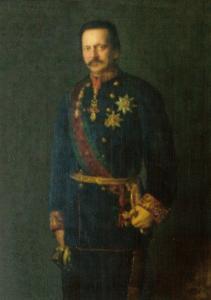
Eduard Taaffe : Premier and gray eminence of the Empire
Eduard Graf Taaffe (Count Eduard Franz Joseph von Taaffe; 11th Viscount Taaffe and Baron of Ballymote, in the peerage of Ireland) (Note regarding personal names: Graf is a title, translated as Count, not a first or middle name. The female form is Gräfin.) (February 24, 1833 – November 29, 1895) was an Austrian statesman within the Austro-Hungarian Empire. Taaffe was an excellent organizer, although not an exceptional speaker. He was Prime Minister of Austria from 1868-70 and from 1879-1893, the longest administration during the reign of Emperor Francis Joseph I. He was faced with tension between different national groups, especially between the Czech and German communities in Bohemia. He succeeded in ending a Czech boycott of parliament but it was unrest in Bohemia that finally brought about his dismissal, after which he retired from public life. Taaffe contributed significantly to the democratization process in Austria. Although himself an aristocrat and a member of the social elite, he extended the franchise during his career. His political instinct was to conciliate, to find a middle path between extremes. Most successful peace-making efforts call for compromise on both sides and during his administration he prevented major disruption and unrest within the multi-cultural empire, with its several languages and ethnic communities. Had Austria-Hungary not sided with Germany in World War II, which led to the break-up of the multi-national empire, it may have continued to develop a con-federal system as a model of how to order multi-cultural polities. Its collapse resulted in the formation of mainly mono-cultural states. As the world becomes more inter-dependent, lessons on how people of different faith, culture, and nationality can co-exist and thrive alongside each other without rivalry, are urgently needed. Taaffe's conciliatory instinct may at least point in the right direction for ordering harmonious multi-cultural societies. Family background and early years Taaffe was the second son of Count Ludwig Patrick Taaffe (1791-1855), a distinguished public man who was minister of justice in 1848, and president of the court of appeal. The Taaffe family were originally from Ireland and in addition to their Austrian title of Count they were also Viscounts Taaffe and Barons of Ballymote in the peerage of Ireland. As a child, Taaffe was one of the chosen companions of the young archduke, afterwards emperor, Francis Joseph. In 1852, Taaffe entered the public service. By virtue of the death of his elder brother Charles (1823-1873), who was a colonel in the Austrian army, Taaffe succeeded to the Austrian and Irish titles. He married Countess Irma Tsaky in 1862, with whom he raised four daughters and one son, Henry, the 12th Viscount. Involvement in politics and first term as Minister-President In 1867, Taaffe became governor of Upper Austria, and the emperor offered him the post of minister of the interior in Beust's administration. In June 1867, he became vice-president of the ministry, and at the end of the year he entered the first ministry of the newly organized Austrian portion of the monarchy. For the next three years he took a very important part in the confused political changes, and probably more than any other politician represented the wishes of the emperor. Constitutional changes In 1867, significant constitutional reforms were enacted that gave imperial subjects a series of new rights. That year, Austria united with Hungary to form the dual monarchy. Hungary had a separate Parliament. The Austrian Parliament, with 516 members of the lower house and 291 members of the upper house, was given enhanced powers. The Imperial Council, previously only an advisory body, was invested with legislative authority. New freedoms were enshrined in the constitution, including universal law and order for everybody without exception, freedom of conscience and of religion, freedom to assemble or to gather, freedom of speech, freedom of scientific research and freedom of movement. The principles of universal equality vis-à-vis the law and inviolability of personal property were also affirmed. In addition, the judicial system was completely overhauled with the decreed (and this was generally upheld in practice) independence of judges at all levels and the “imperial court of law” was established to adjudicate complaints of citizens regional (or local) governments. One very important element in this democratization process was enactment of the mandatory eight-year school-attendance and the abolition of church-control over the school system. A common council consisting of the monarch, the two minister-presidents, or Prime Ministers (one for Austria, one for Hungary), the ministers of finance, defense, and foreign affairs and some additional members, attended to joint business. While the franchise was limited by gender (men only) and by social status (there were land-owning requirements) what was emerging, as argued by Lieven was a different sort of empire, one that was more of a multi-national democratic federation than a large territory held together by fear and coercion. The issue that remained unresolved was whether regions would be given autonomy within a federal system, or the central Reichsrat would remain the locus of power. The Liberal majority favored the non-federalist option. National movements in various part of the Empire wanted recognition of their languages, and other concessions. President of the Cabinet Taaffe had entered Parliament as a German Liberal, but he soon took an intermediate position between the Liberal minority of the party that advocated a federalist amendment to the constitution and the majority that opposed this. From September 1868 until January 1870, after the retirement of Auersperg, he was president of the cabinet (Prime Minister). In 1870, the government collapsed over the question of further revision of the constitution: Taaffe, along with Potocki and Berger wished to make some concessions to the Federalists; the Liberal majority wanted to preserve the authority of the Reichsrat. The two parties presented memoranda to the emperor, each defending their view, and offering their resignation. After some hesitation, the emperor accepted the policy of the majority, and Taaffe with his friends resigned. The Czechs were demanding a status similar to Hungary's, with a parliament of their own and devolved powers. The regions did have diets (assemblies) but these had very limited functions. Second term The Liberals, however, were unable to continue in government because most delegates from the territories, favoring federalism, refused to appear in the Reichsrat. The government resigned. Taaffe, out of office, was appointed became governor of Tyrol. Between 1870 and 1879, there were six Prime Ministers, with none lasting more than a few months. No one could gather enough support to effect the policies they wanted and in August 1979, Taaffe found himself back in office. Since he had only a loose party affiliation and was known to be loyal to the Emperor, he was regarded as the best choice to follow a middle course between the competing factions. He set himself the task of maintaining a strong center while making concessions to the regions. He persuaded the Czechs, who were boycotting Parliament, to participate by agreeing to establish a Bohemian University at Prague and introduced changes to the electoral system, which had previously favored the minority German-speaking community in Bohemia. They ended the boycott in 1881. Recognition, too, was extended to use of the Czech language in schools but not for official transactions. Through careful concessions, he was able to sustain his administration for 14 years. Taafe also introduced legislation regulating working hours, and accident and health insurance. Election reform of 1882 Count Taaffe is mainly remembered for his election reform of 1882, which reduced the minimum tax base required for males above 24 to vote to 5 guilders. Before this reform, the tax base was set locally, but usually at a considerably higher level, thus including only 6 percent of the male population of Cisleithania (the Austrian part of the Empire). However, even after his reform, there were still four classes of voters whose vote counted differently depending on how much tax an individual was paying. He wanted to introduce universal male franchise but could not muster enough support. The next election reform was enacted in 1896, by Kasimir Felix Graf Badeni, who succeeded in enacting more radical reforms than Taaffe had achieved by greatly lowering the level of qualifying income for the male suffrage to below five guilders. Late years In 1893, he was dismissed from office due to increased agitation between the German and Czech communities in Bohemia. His dismissal shocked some because he had managed for fourteen years to keep the peace between competing national factions with considerable success. His successor, Count Erich Kielmansegg did not survive long. In 1895, he was replaced by Count Kasimir Felix Badeni, who, attempting to solve the German-Czech issue, declared that German and Czech would both be official languages. Since many people did not speak both, this was wholly unworkable. He was dismissed in 1897, following sessions in Parliament disrupted by Germans from Bohemia. Taafe retired into private life, and died two years later at his country residence, Ellischau, in Bohemia. Legacy While not a great creative statesman, Taaffe had a talent for managing men. A poor public orator, in private conversation he had an urbanity and quickness of humor which showed his Irish ancestry, and which people found very appealing. Beneath an apparent cynicism and frivolity, he hid a strong feeling of patriotism to his country and loyalty to the emperor. It was no small service to both that for so long, during very critical years in European history, he maintained harmony between the two parts of the monarchy and preserved constitutional government in Austria. The necessities of the parliamentary situation compelled him sometimes to go further in meeting regional demands than he would probably have wished. An aristocrat by birth, his instinct was pro-democracy and he wanted to draw more people into the political process. Taaffe played an important role in beginning a process of democratic transformation in the Austrian-Hungarian Empire that responded to the winds of change blowing across Europe. Other metropoles—mother countries of imperial systems, such as the Great Britain, France, and Netherlands were now constitutional monarchies. The days of empire were not over, indeed, several empires were still growing, but autocratic, authoritarian rule was less and less popular. How could European condemn the Ottoman Empire as decadent and tyrannical if their own house was not in order? The Empire knew that it needed to liberalize or it would experience the same nationalist uprisings that was tearing the Ottoman Empire apart. Only by granting rights to the different nationalities in the Empire could it hope to survive into the twentieth century. Lieven states, that as a result of constitutional change, by 1900, to a "unique extent" Austro-Hungary was becoming "multi-national democratic federation, able to offer its peoples the economic benefits of a huge market, legally protected equality in status, and the security that was the Empire's traditional boon." It also spent less on its military than almost every state in Europe From site : http://www.newworldencyclopedia.org/entry/Eduard_Taaffe
Ludwig Salvator of Austria-Tuscany great friend of Elisabeth and even Rudolf (Mayerling affair?)
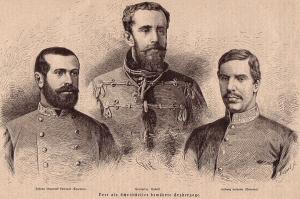
Ludwig Salvator of Austria-Tuscany great friend of Elisabeth and even Rudolf (Mayerling affair?)
Ludwig Salvator (born August 4, 1847 in Florence, † October 12, 1915 at Brandeis, Bohemia) was Archduke of Austria and Prince of Tuscany. Today he is best known for his scientific studies and regional studies in the Mediterranean region.LifeLuis Salvador was the second youngest son of the reigning Grand Duke of Tuscany, Leopold II, and his wife, Maria Antonia of Naples and Sicily. As a scion of the Tuscan branch of the House of Habsburg-Lorraine, he enjoyed a liberal education. Instead of court etiquette, the young Archduke occupied rather with the study of nature and of several languages and with his chimpanzee "Gorilla". 1859 had to leave the last Grand Ducal family has become unpopular because of the Risorgimento and the Austrian defeat at Solferino Florence - the Grand Duchy of Tuscany was annexed in 1860 by Piedmont-Sardinia. Ludwig Salvator now lived with his parents at Brandeis Castle near Prague. Soon he realized that he was not appointed to a civil service or military career, but the explorers. In the late fall of 1876 he purchased in Zindis in Muggia (Trieste) is a country house with associated lands that until 1914, left as in the course of military events on the advice of his cousin, the Emperor Franz Joseph I, Zindis to should be his permanent summer residence. As in 1914, the First World War broke out, had to return Luis Salvador imperial command of the Castle in Prague Brandeis. During the war was already terminally ill Archduke - he suffered from elephantiasis - his last work "tenderness expressions and words of endearment in the Friulian language" appears ("Magari un pagnut in the vuarê-si ben, bene an end" - "A piece of bread is daily also enough, if you love one another only, my darling! "). On 12 Ludwig Salvator died in October 1915 at Schloss Brandeis. Instead on his estate Miramar, "where the sun with its golden light flooded his grave mound" would have the "Diogenes of royal family" rests, as the Spanish poet Unamuno had once called him, now. In a niche of the Imperial Crypt in ViennaCruises Traveled extensively in his youth had imbibed in Ludwig Salvator longing for the sea and southern countries. So "on leave" him, the Emperor, and in 1867 issued the first Louis under the pseudonym "Ludwig Graf Neudorf" to scientific studies on the trip to the Balearic Islands. The main island of Majorca and its people impressed him so much that he moved three years later to the island. As the owner of "Captain patent the long drive", he purchased a ship ("Mermaid"), which he used as his real home. "The migratory instinct is innate. Only the so-called civilization, the many obligations imposed on the man, brought him to the sedentary life and no way you can practice this natural instinct as with the yacht. You can be your own work, they literary, be it artistic, it was scientific, have them on board with all the tools required for this purpose is the same devote tätigst and yet delight the eye from time to time with new pictures, let me say at once so also the mind refresh. With new walks, with new rides, an agent is created to rest while you work, what you would look in vain for a permanent home. " With the "Mermaid" Ludwig Salvator toured for decades the Mediterranean, mostly in the company of about 20 people, as well as dogs, cats, birds, monkeys and all sorts of other animals, so that the ship contemporaries derisively as "Noah's Ark" designated. The ragtag traveling party of Archduke caught in the ports always a sensation. Besides the shipping was particularly interested in scientific research unnoticed islands and coastlines. For this purpose he had designed an approximately 100-page questionnaire called "Tabulae Ludovicinae" which he handed formed upon arrival in the target area local people, such as the mayor, doctor, teacher, judge and priest, with the request that as many to collect and accurate data about their work and areas of knowledge, which he then auswertete together with its employees. Ludwig Salvator went, accompanied by his secretary Mallorcan Don Antoni Vives and local guide often on long walks, where he described the landscape, flora, fauna, people and culture of his whereabouts in detail. By doing so he always had a little ink in the barrel shape of a globe, pen and paper. This created a wealth of drawings, and completed his descriptions. From this data set, Ludwig Salvator together extensive manuscripts, which he had at his own expense at the Prague publisher Mercy Print elaborately designed in the form of books. Generally made only in an edition of 500 pieces, gave away the Archduke this bibliophile rarities friends, employees and other interested persons and institutions in its work. By the well-known travel publisher Woerl Leo (1843-1918), who also wrote the first biography of Ludwig Salvator, some of the work of the Prince arrived in the bookstores. Ludwig's scientific works quickly found international recognition, he got diplomas and honorary memberships of various academies and institutions. His close friend, Jules Verne, he served as the model for the hero of the novel "Mathias Sandorf".Researcher and chronicler of the Mediterranean Luis Salvador there was a great concern to arouse the public's interest in landscapes, which, he found, were unjustly little known and little visited. His attention was less the traditional cultural centers, but small, undiscovered regions, such as the islands of Paxos and Andipaxos, Ithaca, Lefkada and Zakynthos in the Ionian Sea and the Aeolian Islands north of Sicily, the islands of Giglio, Ustica and Alborán and especially the then largely unknown Balearic Islands of Mallorca, Menorca, Eivissa (Ibiza) and Formentera. In 1869 appeared the first, Emperor Franz Joseph dedicated his band of seven individual volumes in nine existing folios, about 6000 pages of monumental work, the Balearic Islands. In words and pictures depicted, for the first of two volumes he at the Paris World Exposition of 1878 won the gold medal. This monograph contains descriptions of animals, plants, meteorology, history, folklore, architecture, landscape descriptions through to highly detailed description of the people, their customs, songs and poems. In 1897 a two-volume edition was published in People (The Balearic Islands. Described in words and pictures) with the main illustrations and texts. She is on loan from the Geographical Society, the Austrian State Archives Peaceful international understanding The Archduke was also interested in the progress of technology, which has been shown in major international exhibitions of the time. In 1881, he decided to visit the World Expo in Melbourne, Australia. The committed pacifist enthusiastic in his view, peace-promoting effect of such major events. In its 1911 - three years before the outbreak of the First World War - published booklet "Something about World's Fairs", he wrote: "How many Preconceived opinions, how many prejudices when meeting another people, stripped the life in his country. I contend that if the individual peoples knew one better, they would not be hostile to it. "He also brought a thought for the design of the world exhibition spaces, such as the requirement for a wheelchair infrastructure (" wheelchair suitability ").Friendship with Empress ElisabethLudwig Salvator was a friend of Empress Elisabeth ("Sissi"), which estimated the Archduke very. She visited him twice with her yacht Miramar in Majorca. Special whispering at the Viennese court caught her absence on Christmas Eve of 1892, its 55th Birthday, which she spent with her rather ascetic man with her corpulent cousin. "I hope that the thick Luigi ensures your well-being," telegraphed the Emperor anxious husband.Private On Majorca is shrouded countless legends and anecdotes about the still valued "Archiduque", the uncrowned king of the Balearic Islands. Ludwig Salvator's special trademark was his extremely sloppy clothing. He moved rather in the company of ordinary people, "of which one can learn much more than from many a scholar.", And hung up his appearance no particular value He wore threadbare suits or simple robes, had the cuffs splits tied together (for Austrian roped) and was occasionally held for his own amusement, for a swineherd, sailor, cook or farm workers. Once he received from a Majorcan farmers, whom he helped to pull a cart out of the mud stuck, donated a tip. "My first self-earned money," as he later recalled with pride. The Viennese court, he was considered eccentric and learned disguised communist, and one very amused about his only uniform that burst at the seams with the years. On whether the mockery of his crease looks the archduke but said quietly: "Dear diverse as stupid!" Many stories also deal with the love life of the Archduke, who was never married to the charms of both sexes and especially the beauty of Mallorquinerinnen devoted. His numerous illegitimate children should have the Archduke well supplied. Of special importance in this amorous kaleidoscope takes the carpenter's daughter Catalina Homar, who under the tutelage of her mentor, enjoyed an excellent education, learned several languages and became the administrator of his wineries. Center of her life was even planned by Luis Salvador for a model in the Aeolian Islands S'Estaca small cottage. On adjacent lands matured including Malvasia grapes for its wines, the Archduke and his winemaker numerous prizes at international exhibitions, even in America, were given. On a trip to Jerusalem to Catalina have contracted leprosy, where she died in the 1905th Today the house S'Estaca of Hollywood star Michael Douglas is inhabited, is a big fan of "Archidux" and has recently initiated in Valldemossa the information center "Costa Nord". Fromsite: http://de.wikipedia.org/wiki/Ludwig_Salvator_von_%C3%96sterreich-Toskana

ARTICLE ON MAYERLING: RODOLFO conspired 'AGAINST FRANZ JOSEPH
FROM THE SITE: http://sissiludwig.forumfree.it/?t=19204815&st=15 (FORUM FONADATO BY ENRICO HERCULES COURTESY TO HIS) ARTICLE ON MAYERLING:
Vienna 1889: the heir to the throne of Austria suicide for a thwarted love (according to the official version) with his mistress Mary Vétzera. Or move has run the "justice" of his father, the Emperor? Rudolph of Hapsburg conspired 'AGAINST FRANCESCO GIUSEPPE? by JOHN Pizzorno Of Mayerling, after a hundred years, we still talk every now and then. Or for the film version that passed the crazy love that ends in murder-suicide, or doubts about the official historians (who has never been able to deny, despite its many cracks), and because even over ninety Zita of Austria, widow of the last Emperor Charles I, shortly before his death he had promised the publication of documents that they would know the truth about the death of Crown Prince Rudolf and Baroness Mary Vétzera. But those papers were secret: the former empress did not dare or did not consider it appropriate to maintain the commitment made before history and brought the mystery itself when he finished his long life (even his son Otto then announced its intention to give the solution of the yellow but even he dared to open the closet door behind which lurked this rumored skeleton of the Habsburgs). Although not supported by official documents, we would try to rebuild the yellow Mayerling. Lead us to attempt certain connotations of the tragedy that carry historical and political signs than those typical of a self-destructive incendiary passion. And, as in any police investigation, we continue the examination of the personality of the characters, the exposure of certain facts, interviewing witnesses and analyzing the arguments in favor of the double suicide for love or double political assassination. THE PLAYERS Rudolph of Habsburg. Heir to the throne of the Emperor of Austria and King of Hungary, founded in 1858 by Franz Joseph and Elizabeth Wittelsbach, a relative of the King of Bavaria. At twenty-three he married Stephanie, daughter of Leopold, King of Belgium, two years after he has daughter Elizabeth (Ersie), destined to remain unique, because his wife can not have more children. Intelligent, educated, a friend of scientists, journalists, intellectuals, begins with a twenty two papers, one on the hunt (which he is also an opportunity to study natural sciences) and one anonymous against the Austrian nobility. The future emperor is revealed supporter of parliament and an enemy of the Jesuits, to the point to say that public opinion and not the grace of God is the source of power. Subsequently, on many occasions, and also reveals liberal freethinker (it was commonly believed to be a Mason), inspired by the example of the ancestor Joseph II, "the emperor Jacobin" or, rather, enlightened reformer, was pro- Hungarian, loving the libertarian spirit and rebellious of the other part of the empire he admired France and England, he hated the Tsarist despotism and Prussia. However, it was militaristic and dreamed of revenge of the many defeats of Austria, and especially that of Sadowa: the future of Austria was, for him, in a constitutional monarchy, able to overcome national antagonisms (such as, never said), to humiliate Germany and Russia, to extend to Thessaloniki and Constantinople. Twenty-five years later, in 1883, inaugurated the Vienna Exhibition of electricity, and instead of the usual speech of the occasion, releases a hymn, positivist and patriotic, in the light of the new times (between Carducci of '"Hymn to Satan" and "Ballo Excelsior", to use two reference points of disclosure positivist Italian). The match was invented in 1833 in Vienna by Preschel, said among other things the prince, in Vienna in 1837 had been invented tallow candle, the streets of Vienna were illuminated gas before London and the electric light "can Vienna maintain its place of honor, a sea of light s'irraggi from this city, and a new step it moves "As if that. were not enough, the Neues Wiener Tagblatt publishes an article, anonymous, like other of his collaboration, entitled The thousand and one day. And it enhances the exposure as a sign of progress and achievements of the century of science, which would bring more than a thousand days of light on the ashes of the defeated obscurantism. His ideas, and his friendships, especially those with Moriz Szeps, founder and director of the Neues Wiener Tagblatt, were at odds with the ideas, feelings, and his father's policy and the dominant group: reactionaries, forced to suffer from the parliamentary iniquity of the times, clerical, rest assured that the future of the empire could only be ensured immobility, Germany's allies, and looking for good relations with the tsar, to mitigate the grounds of friction on the eastern borders. If it were possible psychological analysis, you will probably find that this opposition of ideas was the revenge of a child neglected by his parents and treated coldly by her father. Bureaucratic and dull Emperor Franz Joseph had entrusted to General Rodolfo quattrenne Gondrecourt, which three years later was succeeded by Colonel von Thurmberg Latour, one of the most severe military and other. At the same time, just as Rudolph was four years old, his mother Elisabeth left Vienna and traveled continuously from 1862 to 1866. This prince, antithetical to the Habsburg model, loved to go with his charioteer Bratfisch popular in taverns, talking with people. He had friends and bourgeois Jews, something which was harshly criticized, two months before his death, the German newspaper Kreuz Zeitung, who could not afford such an attack if someone had not authorized or pushed. In his sympathy for the Jews resembled the mother, whose favorite poet was Heine, and Heine Rodolfo, a month before his death on Christmas Day 1888 gave her some poems in manuscript. There's more. The neurologist Bohemian Benedikt, who was his doctor told him that Rodolfo - the first and only of the Habsburgs to set foot in the ghetto of Prague - fell in love with a Jewish girl, who immediately sent relatives in the country and became engaged to a fellow. This ability to love without ridicule and prejudice is confirmed by its sensitivity to the ill-fated love stories of poor girls, victims of aristocrats as evidenced by his letter to his friend Szeps, touched by the suicide of Mary DALMONT and hard against the Henry Coudenhove seducer and his father, the high nobility seems that both the horse exhausted as the middle-class girl spoiled to death belong to one and the same category, which is that of sport. His love stories more conventional, with an actress of Prague and one of Vienna, do not seem to contradict the image of a sensitive, respectful of women, and thirsty for love. Mary Vètzera. Founded in 1871, the daughter of a Hungarian baron and Elena Baltazzi, in turn, the daughter of a wealthy banker greek, friend of the Sultan. Mary followed the family's father, a diplomat in various capitals including London (the intimate called Mary dear) and Cairo, where his father died shortly before the tragedy in 1887. Is described very nice, nervous, dreamer, great reader and a good singer. He received the traditional education of the young ladies of the aristocracy, but in addition had the privilege from trips and visits. In Cairo, it seemed he had fallen in love with a British officer. In Vienna, at the time of tragedy, she was in love with Michael of Braganza, widower of a daughter of Empress Elizabeth and future uncle of the Empress Zita. In 1881, Mary, ten years old, lived in Dresden and it seems that there Rodolfo met for the first time. He was thirteen years (and Rudolph 26) when he met him again in Constantinople, it seems that infatuation early adolescence has been rooted to turn into love, when - at the beginning of 1888 - the widow Baroness Vétzera and children returned to Vienna. The love of Mary for the crown prince was known in the family, but a considered childish. Mary went to the Prater to meet Rodolfo, and just looking, had to go to England in the summer and hoped for a long time to get sick so as not to leave. Agnes, her maid, later told her mother fatterelli these and the secrets of Mary. Before leaving for England, Mary told her that she could never love another man, and after the trip said to love him more deeply than before. The sister Hanna was stupid and ridiculous that she was madly in love with the Crown Prince, and Mary answered: It 'sa pleasure to worship someone who is totally different from other men. "In September 1888, heard that the Countess Marie Larisch, cousin of Rodolfo, would meet him in Bavaria, begged her to let him have this verbal message: "One who loves him sent him a fond farewell. SOME FACTS On the testimony of the maid Agnes and her friend and confidant Erminia (the surname is still unknown) , we know that Mary, in October, he wrote to the prince, by the Countess Larisch, and that Rudolph replied by registered mail, proposing a meeting. Mary could not go out alone again and asked the help of the Countess pressed also by Prince, Mary Larisch - with the excuse to go out for shopping - after taking Mary as a photographer, he took her to the imperial palace: it was November 5. During that month there were other meetings, always with the complicity of Mary Larisch. In December, absent Countess from Vienna, Mary was able to reach the prince to the Hofburg some time between seven and nine in the evening, while his mother and sister went to 'Work for Wagnerian. But only two months after the first meeting of the two young men passed shyness and reluctance: January 13 Mary said to the maid would have been better that I was not leaving this time. now no longer belong to myself, but to him alone. Two days later, he bought a gold cigarette case on which he affect the sentence: January 13 - thanks to fate and gave it to the prince. these was a gift from a cigarette case with steel clasp Sapphire, a bracelet, a ring and a locket with the initials of the words Liebe In vereint bis in den Tod (united in love until death.) On January 18, Mary (who would have turned eighteen two months later) made his will. Franz Joseph, Emperor of Austria and King of Hungary, the evening of 19 was able to avoid a dance , which instead went to his mother and sister, and stayed two hours with the prince. Rodolfo Then departed from Vienna for several hunts for four days, the 24 met briefly at the Prater. Another meeting, no one knows in that day, took place at Schonbrunn. On 25 and 26 January there were great scenes between Mary and her mother, who had discovered the purchase of gold cigarette case. On the 27th, Sunday, Mary was presented in the dance company of the Embassy German. entered the Princess Stephanie, wife of Rudolph: the young Vètzera looked her in the face, without bowing his mother, furious, immediately took her away and beat her in the carriage, as Mary said the day after the Larisch. But in those days, Rodolfo had its scenes, and far worse. According to several witnesses, including the stories that the Empress Elizabeth made to the British General Middleton and the former Empress of France, Eugenia, on the evening of January 26 there was a meeting stormy between Franz Joseph and his son, either because, as some guarantee, Rodolfo had asked Pope Leo XIII to annul his marriage, because of the sterility of Stephanie, or because the prince had made that request to the emperor himself. The scene was indescribable: Rodolfo had threatened to kill himself, but the emperor remained adamant. The next day, Rodolfo goes to her cousin Mary Larisch (this too enigmatic dea ex machina of the whole affair), and asks for his help to review usually Mary and delivery a box of documents sealed. The morning of Monday 28 Prince goes to Mayerling, where he had a hunting lodge. Mary and Countess Larisch out together as usual, but this time the Countess returned alone, saying she had been abandoned by Mary. Which in fact, climb into the carriage driven by Bratfisch, you do bring in Mayerling. ago The girl's mother have a terrible ticket: "I can not live. Today I have the initiative. Before you m'abbia reached, I will be at the bottom of the Danube. Mary. "But here there are the first questions. Why had gone to Mayerling? Order to kill himself, as he does believe the note mentioned in the memoirs of her mother, but not that of the Larisch, which was supposed to receive it in the carriage. Rodolfo But then why had invited to a hunt for Jan. 30 Count Giuseppe Emanuele Hoyos, adjutant, and her brother Philip Prince of Coburg, and why the evening of the 29th he telegraphed to Count Karolyi Hungarian track, inviting him to a meeting in Vienna on 31 ? dawn on January 30, while Hoyos, Coburg and get ready for the game warden to stop Krottenbach, the waiter Loschek goes to wake the prince, who orders him to return in an hour. Probably - if true the official version - at that time Rudolph had killed Mary with a gunshot wound to the head. writes to his mother (who told the Empress Eugenia) who, after having killed Mary, he had no right to live. was said that they were found d ' farewell to his father and wife, of course, never published; friend Szoegyényi and Michael of Braganza. Mary had written three letters, dated January 29, the sister, one brother, and mother. Cardinal Rampolla opposed to funerals religious princ; homicide and suicide, probably, fourteen years later, the emperor had to vengeful Austrian veto his election as pontiff. instead Leo XIII granted religious funerals: Like all Habsburg Rudolf was also buried in the crypt of the Capuchins. Poor Mary suffered a gruesome transport carriage Heiligenkreuz, where he was buried secretly at midnight - with a medical report of suicide - while his mother was forced to leave Vienna immediately after she was told that her daughter had poisoned Rodolfo. since report suicide of Mary and the hurried denigration of her as murderous attempts start of authority to cover what really happened at Mayerling, and together begins, of course, the welter of speculation, the rumors, inventions but also suspicions based, questions that periodically the same declarations of Otto von Habsburg and Empress Zita continued to feed. because the same members of the imperial family continued to say that one day we will know the truth about Mayerling? There is bad enough the truth of a crown prince homicidal and suicidal? What can be and worse, if for a hundred years has been led to believe the death to love? WITNESSES Agnes, the maid Mary V acute tzera. Did not leave statements, except for those listed in the memorial of Mary's mother: and then we do not know if they are genuine. domestic staff of Mayerling: the waiter Loschek, gamekeeper Wodiczek, two cooks, two boys. The morning of January 30, 1889, discovery of the death of the two lovers, Prince Philip of Coburg servants are required by the oath of silence, which will be fulfilled. Bratfisch The coachman. Very close to Prince Rudolf, brought many times to the Hofburg and in Mary ' last trip to Mayerling. He said that the night before the tragedy Prince and Mary had made him sing the "Song of the coachman," and some songs Styria, the prince had given the order to bring Mary in Vienna that night, but then changed his mind. On the rest, even Bratfisch kept the oath of silence. few years later, he emigrated from Austria. Cernousek Joseph, a police officer in the wake of Rodolfo. was the day of the tragedy at Mayerling. died in 1925, leaving a sealed package to open ten years later: if they have not heard anything. Emmanuel Joseph Hoyos, assistant to the prince, who was in Mayerling: it was he who went to Vienna on the morning of 30 to break the news to the Emperor. died in 1917 without having made statements, his nephew claimed: "My uncle has brought with him to the grave the secret, but one thing always said: the official story is nonsense, the reality was quite different." Philip of Coburg, brother of Rudolph, who was in Mayerling "Do not ask how it happened, is already sad enough that it happened. A veil is lying on the mystery. "Empress Elizabeth, mother of Rudolph. And 'the most authoritative source on the attempt of the Prince of the annulment of his marriage to Stephanie of Belgium and the scene between him and his father, Francis Joseph. Maria Larisch. daughter of Duke Louis of Bavaria, brother of the empress, was two years younger than his cousin Rudolph. At seventeen she married the Count Larisch, twenty years after he divorced to marry the singer Bruck in 1924 he married a rich American , Meyers, and probably ended up in Australia. grandson and great friend of the Empress, he was then hated as manutengola of the relationship between the two young and indirect cause of their death. Mayerling After he emigrated to Munich, then to London, where he published a book (My past, "My Past"), interesting but do not know how reliable: his main concern was to defend himself against accusations of mothers of Rudolph and Mary. Among other things, says that - in the last meeting with her had with Rodolfo, before the prince left for Mayerling, - had received a box that was not to be absolutely found among his papers, in the case that the emperor had ordered the seizure of the property of the Crown Prince. Having Maria Larisch tried to advise him to have confidence in the emperor's cousin replied that this would be tantamount to sign my death warrant. The box would have to be returned to him or who had submitted letters saying RIUO After the death of Rudolph, the Countess Larisch came a message on the box: took her to the place given to you at night and there stood the Archduke John Salvatore, the greatest friend of Rodolfo. latter, withdrawing the tape, said to the Countess that the Kronprinz (Crown Prince or Crown Prince) is was killed, for fear that the conspiracy had been discovered which was put on the throne of Hungary. Vétzera Elena, the mother of Mary. Subjected to slander and accusations, even terrible, after 1918 came out two letters from the archives decent Francis Joseph and answer them. Mayerling But soon after he published a memoir, in line with the thesis of the double suicide, but nonetheless, the police seized and destroyed copies (only a few could be smuggled out of Austria). Between the rumors in Vienna after the tragedy, the rumor was insistent that Baroness Vétzera had committed to silence for a fee of 800,000 florins, which served to buy an estate. His memorial was later re-released in installments in 1921 from Reicheberger Zeitung. Kaiser Carolina. claimed to be the daughter of the Empress Elizabeth and was very informed about the gossip of the court. Wife of an Austrian diplomat, left alone in Vancouver, I did the cook and the shopkeeper, then married the Count Zanardi- Landi. filed a lawsuit in 1912 against Francis Joseph to be recognized and daughter Archduchess. seems that was offered one million crowns because they withdrew in the shadows, but the countess refused and tried to publish abroad a book, The secret of an empress: he did not succeed in Italy, which was allied of Austria, and published in France, where, however, the issue was bought in bulk from strangers. republished in The UK in July 1914, but the outbreak of the war did go unnoticed. hard to say they're worth the thesis of the Countess Zanardi-Landi, who was the main supporter of the Jesuit-reactionary conspiracy to kill Rudolf and his mistress, do you think, Rodolfo was killed by a conspiracy hatched by Archduke Franz Ferdinand the conquest of the throne. Rodolfo Since he could not have sons by his wife, Archduke Franz Ferdinand had a good chance of becoming the Crown Prince (as it really happened, and was killed in Sarajevo in 1914). clerical and Slavophile, wanted to eliminate Rodolfo. latter had confided his intention to seek the annulment of marriage in-law Philip of Coburg who believe to be useful in-law, Archduke Franz Ferdinand spoke to obtain assistance, given its good relations with the Church . Franz Ferdinand would seize the extraordinary opportunity, sending the crown prince a Jesuit, Gottfried Marshall, who convinced him to write directly to the pope, and these in turn would inform the shelter where he met Rudolf von Habsburg and her lover. Here were killed by the emperor: checkmate the prince, on the one hand had betrayed fellow believers liberal and Masonic, from 'the other had put in the position of having to abdicate or submit to his father-Emperor. Moreover, according to the Zanardi-Landi, Mary would have gone against the will of Mayerling Rodolfo sign that someone would have led to the fatal step. refusing to submit to, Rodolfo was killed by police officers, led by Baron Bolfrass, and Mary would have the same fate as the only witness. E 'Needless to say, this tale of Zanardi-Landi, though in other passages of his memoirs proves to be well informed on the secrets of the Austrian imperial family (he claimed to have received confidences of Empress Elisabeth his supposed mother), is not supported by any evidence. Count Eduard Taaffe, prime minister from 1879 to 1893: reactionary, clerical, Slavophile, faithful interpreter of policy immobilista of 'emperor, and opposed by Rudolph and John Salvatore. After tragedy, Franz Joseph gave all the documents of Mayerling to his prime minister, who in 1895 - by will - forbade the publication to the heirs. So, Professor Arthur Skedl, who in 1922 published the memoirs of Taaffe with many documents, not had nothing that was about Mayerling. Four years later (March 1926), a fire destroyed the property of the Counts Taaffe to Ellischau, in Bohemia, and among other things were destroyed also the protocols of the imperial Mayerling. Archduke John Salvatore. son of the last Grand Duke of Tuscany, was born in Florence in 1852. Liberal, maybe Mason, imperialist, composer and author of studies of military history, critical of the establishment Habsburg, Archduke was a great friend and confidant of Rodolfo, which was said who shared the plans for an Austria different. could have been a witness to a conspiracy "Hungarian" and liberal Rodolfo, but if there was a conspiracy, Giovanni Salvatore there would have been involved up to his neck, and was silent. According to the Countess Larisch , she would have said that the Crown Prince had been killed, the fact is that the day lodge, in the house of his girlfriend Mary Stubel, crying, said that the prince was murdered. few months later, Giovanni Salvatore renounced his titles and, with the name of John Orth, he married his mistress petty-bourgeois left the court and Austria and began to live on the sailing ship Santa Margherita. In 1891, in Chile, a shipwreck did away with the ship with the former Archduke and his secret. Franz Joseph, the father of Rodolfo: Everything is better than the truth, he seems to have told the consuocero Leopold of Belgium. Leopold II, King of Belgium (letter to his brother, the Count of Flanders): It 'absolutely essential establish and maintain the version of suicide. eyes of our Catholic people may seem hard to see the enhanced version of the suicide of a house with ideas like those Habsburg. But suicide and mental confusion were the only means to avoid a scandal unheard of, the details in this letter I can not even mention. THE ASSUMPTIONS In favor of the double suicide are seemingly many elements: firstly, the constant references to suicide in the letters of her friend Mary Erminia, if your mother or sister had discovered his love with Rodolfo . But we do not know the name of her friend, and, moreover, in the culture and fashion of the late nineteenth century, the romantic theme of suicide is present in all the literature and diaries love. But there are other elements: the testament that Mary wrote eighteen years not yet completed, twelve days before Mayerling, the ticket to his mother before going to the last meeting with the prince: I can not live. Today I have the initiative. Before you reached, I will be in the bottom of the Danube, the three farewell letters written in Mayerling on January 29, the eve of his death (his mother, his sister, a brother.) In a says: Because I could not resist going to love him. Who speaks of the will and letters? Larisch Maria and her mother Elena Vétzera: both are unreliable because they had a lot to atone for. Larisch The tried to make amends by his uncles imperial, the Vétzera asked Franz Joseph protection for themselves and their children, and could not contradict the official version. then there are the last letters of Rodolfo's mother wrote that, having killed Mary, he had no right to live; Szoegyenyi friend wrote in part: I have to leave the life. A Michael of Braganza: I have to leave the life. could not act otherwise. In another letter, considered historic by Giuseppe Antonio Borghese (author of unsurpassed reconstruction of events, according to the knowledge of sixty years ago), in fact it seems that Rodolfo speak as one who is about to abdicate, and not as one who is about to kill himself, and says Mary his joy overwhelms me. Of the other letters, the father and his wife were never made known, that the mother is been reported only verbally. It is not know if the others are genuine? Against the thesis of the double suicide. The January 1889 was in Hungary a month of unrest, culminating in the last days of threats of anti-Austrian insurrection, by the students, and the left and some nobles, including a friend of Rudolf, Count Karolyi. On January 29 was the day of a vote in Parliament, crucial for the government, and was also the day of an attempted uprising and military repression . the evening of the 29th, just hours before the alleged suicide, Rodolfo telegraphed Karolyi, inviting him to Vienna on 31. Another mystery: Mary disappeared from home, the prime minister Count Taaffe promised her mother she would send an officer of Mayerling police. Whoever went and what you did? Just the tragedy occurred, the court of Vienna lost his head and went around different versions before arriving at the murder-suicide by Rudolf. before it was announced that the prince had died of a hunting accident, then for cardiac paralysis. Meanwhile, the mother of Mary was told that her daughter had poisoned the prince and then she killed herself.'s body was taken to Mary Heiligenreuz in a carriage, with a hoax macabre (a piece of wood behind the back to pretend that he was a living person), and to the monks of the abbey was shown a medical certificate attributed the death of the girl to suicide. Needless to say, it was never done an autopsy of two corpses. Finally, in the small room where the tragedy occurred, the bullets of his revolver Rudolph, with whom he killed, and he would kill himself, were never found
The Main Personages of This Intricate Story
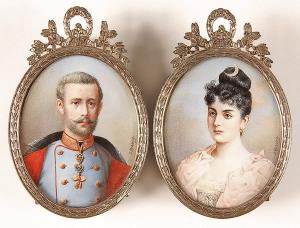
• THE MAYERLING INCIDENT
for courtesy and kindly from Paulo Cattani Diaceto from group on Facebook " European Hystory "
The Mayerling Incident refers to the series of events leading to the apparent murder-suicide of Crown Prince Rudolf of Austria and his lover Baroness Mary Vetsera. Rudolf was the only son of Emperor Franz Josef I of Austria and Empress Elisabeth, and heir to the throne of the combined Austrian-Hungarian Empire. Rudolf's mistress was the daughter of the late Baron Albin Vetsera, a diplomat at the Austrian court. The bodies of the 30-year old Archduke and the 17-year old Baroness were discovered in the Imperial hunting lodge at Mayerling in the Vienna Woods, fifteen miles southwest of the capital, on the morning of January 30, 1889. The death of the Crown Prince had momentous consequences for the course of history in the nineteenth century. It had a devastating effect on the already compromised marriage of the Imperial couple and interrupted the security inherent in the immediate line of Habsburg dynastic succession. As Rudolf had no son, the succession would pass to Franz Joseph's brother, Karl Ludwig and his issue, Archduke Franz Ferdinand. This destabilization endangered the growing reconciliation between the Austrian and the Hungarian factions of the Empire, which became a catalyst in the inexorable developments that led to the assassination of the Archduke and his wife Sophie by Gavrilo Princip, a Serbian nationalist at Sarajevo in June 1914 and the subsequent drift into the First World War. By 1889, many people at the Court, including Rudolf's parents and his wife Stephanie, knew that Rudolf and Mary were having an affair. His marriage to Stephanie was not a particularly happy one, and had resulted in the birth of only one daughter, Elisabeth, known as Erzsi. --------------------------------------------------------------------------------------- On January 29th, 1889, Franz Joseph and Elisabeth gave a family dinner party prior to leaving for Buda, in Hungary, on the 31st; Rudolf excused himself, claiming to be indisposed. He had arranged for a day's shooting at Mayerling early on the morning of the thirtieth, but when his valet Loschek went to call him, there was no answer. Count Joseph Hoyos, the Archduke's hunting companion, joined in, with no response. They tried to force the door, but it would not give. Finally Loschek smashed in a panel with an axe, to find the room shuttered and half-dark. Rudolph was found sitting (by some accounts, lying) motionless by the side of the bed, leaning forward and bleeding from the mouth. Before him on the bedside table stood a glass and a mirror. Without closer examination in the poor light, Loschek assumed that the Crown Prince had drunk poison from the glass, since he knew strychnine caused bleeding. On the bed lay the body of Mary Vetsera, white, ice-cold, and already quite rigid. The mistaken impression that poison was involved, and even that the Baroness had poisoned the Crown Prince and then killed herself, would persist for some time. Hoyos did not look any closer, but rushed to the station and took a special train to Vienna. He hurried to the Emperor's Adjutant General, Count Paar, and requested him to break the appalling news to the Emperor. The stifling protocol that characterized every movement in the Hofburg swung ponderously into action; Paar remonstrated that only the Empress could break such catastrophic news to the Emperor. Baron Nopcsa, Controller of the Empress' Household, was sent for, and he in turn sent for Countess Ida von Ferenczy, Empress Elisabeth's favorite Hungarian lady in waiting, to determine how Her Majesty should be informed. Elisabeth was at her Greek lesson, and was impatient at the interruption. White to the lips, Ferenczy announced that Baron Nopcsa had urgent news. Elizabeth replied that he must wait and come back later. The Countess insisted that he must be received immediately, finally being forced to add that there was grave news about the Crown Prince. This account comes from Ferenczy herself and Archduchess Marie Valerie to whom Elisabeth dictated her memory of the incident, in addition to the description in her diary. The Countess entered the room again to find Elisabeth distraught and weeping uncontrollably. At this point the Emperor appeared outside her apartments, where he was forced to wait with Nopcsa, who was visibly controlling himself only with great effort. The Empress broke the news to her husband in private; he left the room a broken man. The Minister for the Police was summoned and the national security services sealed off the hunting lodge and the surrounding area. The body of Mary Vetsera was interred as soon as possible, without judicial inquiry, and in secret; her mother was not even allowed to attend her daughter's burial. On behalf of the Emperor, Prime Minister Count Eduard Taaffe issued a statement at noon that Rudolph had died "due to a rupture of an aneurism of the heart". The Imperial family and court were still under the impression that he had been poisoned, and it appears that even Mary's mother, Baroness Helene Vetsera initially believed this. It was only when the court medical commission headed by Dr. Widerhofer arrived in Mayerling that afternoon that a more accurate cause of death was established, and not until 6 a.m. the following morning of the 31st that Widerhofer made his report to the Emperor that the true state of affairs became known. The official gazette of Vienna still reported the original story that day: "His Royal and Imperial Highness, Crown Prince Archduke Rudolph, died yesterday at his hunting lodge of Mayerling, near Baden, from the rupture of an aneurism of the heart." Foreign correspondents descended on Mayerling and soon learned that Rudolph's mistress was implicated in his death. This first official version of a heart attack was quickly dropped. At that stage the "heart failure" version was amended. It was announced that the Archduke had first shot the Baroness in a suicide pact and sat by her body for several hours before shooting himself. Rudolf and the Emperor were known to have recently had a violent argument, with Franz Joseph demanding that his son must end the liaison with his teenage mistress. Their deaths were the tragic result of the desperate decision of thwarted lovers taken "while the balance of the Archduke's mind was disturbed". The police closed their investigations with surprising haste, in apparent response to the Emperor's wishes. ----------------------------------------------------------------------------------------- Franz Joseph did everything in his power to get the Church’s blessing for Rudolf to be buried in the Kapuzinergruft, Imperial Crypt, which would be impossible had the Crown Prince deliberately committed murder and suicide. A special dispensation was obtained from the Vatican, declared Rudolf to have been in a state of "mental imbalance", and he now lies with 137 other Habsburgs in the Church of the Capuchins in Vienna. The dossier on the investigations and related actions were not deposited in the state archives, as they would normally have been. The story that Rudolph had violently quarrelled with the Emperor over his liaison with Baroness Vetsera may have been spread by agents of Germany's Chancellor, Prince Otto von Bismarck, who had little love for the politically liberal Rudolph. It was certainly doubted by many of Rudolph's close relatives who knew the Chancellor personally. The Empress Frederick of Germany noted: Yesterday Prince Bismarck came. It was a bitter pill to me to have to receive him [Bismarck] after all that has taken place and with all that is going on. He talked a great deal about Rudolf, and said that a scene with the Emperor [of Austria] had taken place, according to Reuss's account. Perhaps Reuss [the German Ambassador to Austria] was wrong. I should think [it] very likely. [April 9, 1889] She then wrote to her mother, Queen Victoria: ...I have heard different things about poor Rudolf which may perhaps interest you. Prince Bismarck told me that the violent scenes and altercations between the Emperor and Rudolf had been the cause of Rudolf's suicide. I replied that I had heard this much doubted, upon which he said Reuss had written it and it was so! He would send me the despatch to read if I liked, but I have declined. I did not say what I thought, which is that for thirty years I have had the experience of how many lies Prince Bismarck's diplomatic agents (with some exceptions) have written him, and therefore I usually disbelieve what they write completely, unless I know them to be honest and trustworthy men. Szechenyi, the Ambassador at Berlin, whom we know very well, tells me that there had been no scenes with the Emperor, who said to Szechenyi: Dies ist der erste Kummer, den mein Sohn mir macht. [This is the first vexation my son has caused me.] I give you the news for what it is worth. General Loe heard from Austrian sources that the catastrophe was not premeditated for that day! but that the young lady had destroyed herself and, seeing that, Rudolf thought there was nothing else left to him, and that he had killed himself with a Förster Gewehr [brand of hunting rifle] which he stood on the ground and then trod on the trigger. Loe considers, as I do, poor Rudolf's death a terrible misfortune. The Chancellor, I think, does not deplore it, and did not like him! [April 20, 1889]




